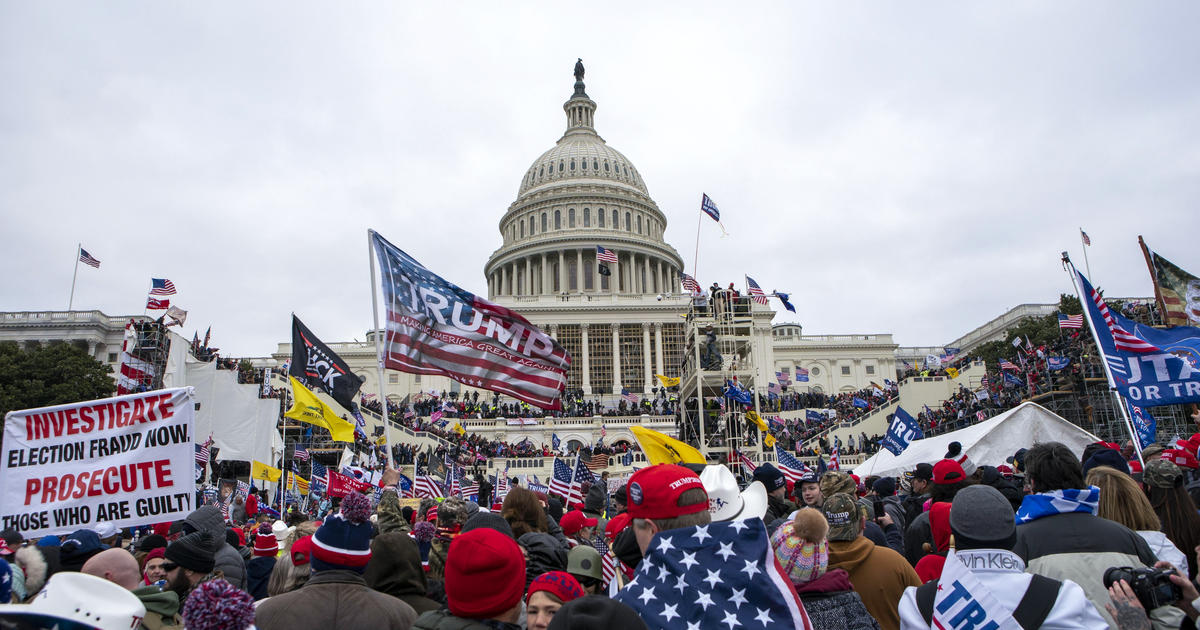The Department of Homeland Security inspector general has directed the U.S. Secret Service to halt its internal investigation into a cache of apparently deleted text messages sent on Jan. 6, 2021, the Secret Service confirmed Thursday to CBS News.
In a letter sent Wednesday night, DHS deputy inspector general Gladys Ayala informed U.S. Secret Service Director James Murray that the agency should stop investigating the matter because it could impede the inspector general’s own probe into the agency’s Jan. 6 response.
“The Secret Service is in receipt of the Department of Homeland Security Inspector General’s letter,” Anthony Guglielmi, Chief of Communications for the United States Secret Service, told CBS News. “We have informed the January 6th Select Committee of the Inspector General’s request and will conduct a thorough legal review to ensure we are fully cooperative with all oversight efforts and that they do not conflict with each other.”
But the directive from the Inspector General’s Office could interfere with the Secret Service’s attempts to respond to the House Jan. 6 committee’s subpoena, as well as the National Archives’ request that the agency submit a report within 30 days explaining the circumstances around the seemingly missing text messages.
The DHS Inspector General and House Jan. 6 committee had previously requested text messages sent and received by 24 U.S. Secret Service officials on Jan. 5 and 6, two Secret Service officials previously confirmed to CBS News.
Prior to the Inspector General’s latest request, officials from within the U.S. Secret Service were in the process of sorting through metadata from the phones of the two dozen officials to determine if the agency failed to preserve any text messages that qualified as government records, according to a U.S. Secret Service official with knowledge of the internal probe. Agency policy does allow for “limited personal use” of U.S. government phones.
In addition to handing over the relevant conversation between former U.S. Capitol Police Chief Steven Sund and former Secret Service Uniformed Division Chief Thomas Sullivan, the U.S. Secret Service has determined that 10 of the U.S. Secret Service officials listed did not send text messages on Jan. 5 and 6 In addition, the agency has found three other officials sent messages deemed to be “personal” in nature and not rising to the threshold of government records. Officials were formerly working to determine if the ten remaining individuals sent text messages that qualify as government records and if those officials failed to appropriately preserve them.
“That is the crux of the investigation,” the Secret Service official told CBS News. “If there is material from a Secret Service official to a Secret Service official that is deemed a government record, then that should have been uploaded by the employee. That is what the Inspector General and the Secret Service are looking at.”
Under federal law, the DHS inspector general has the ability to refer his investigation to the U.S. Attorney General, but ultimately, it is the Justice Department that determines if evidence warrants criminal charges.
A spokesperson for House Homeland Security committee chair Rep. Bennie Thompson said Thursday that the committee had not been notified of the inspector general’s letter to the Secret Service.
The committee said Wednesday that the Secret Service may be in violation of the Federal Records Act, but did not provide more information. The Secret Service has previously said the messages were deleted as part of an agency-wide migration, although records have shown they were warned several times not to delete messages.
CBS News reporter covering homeland security and justice.
